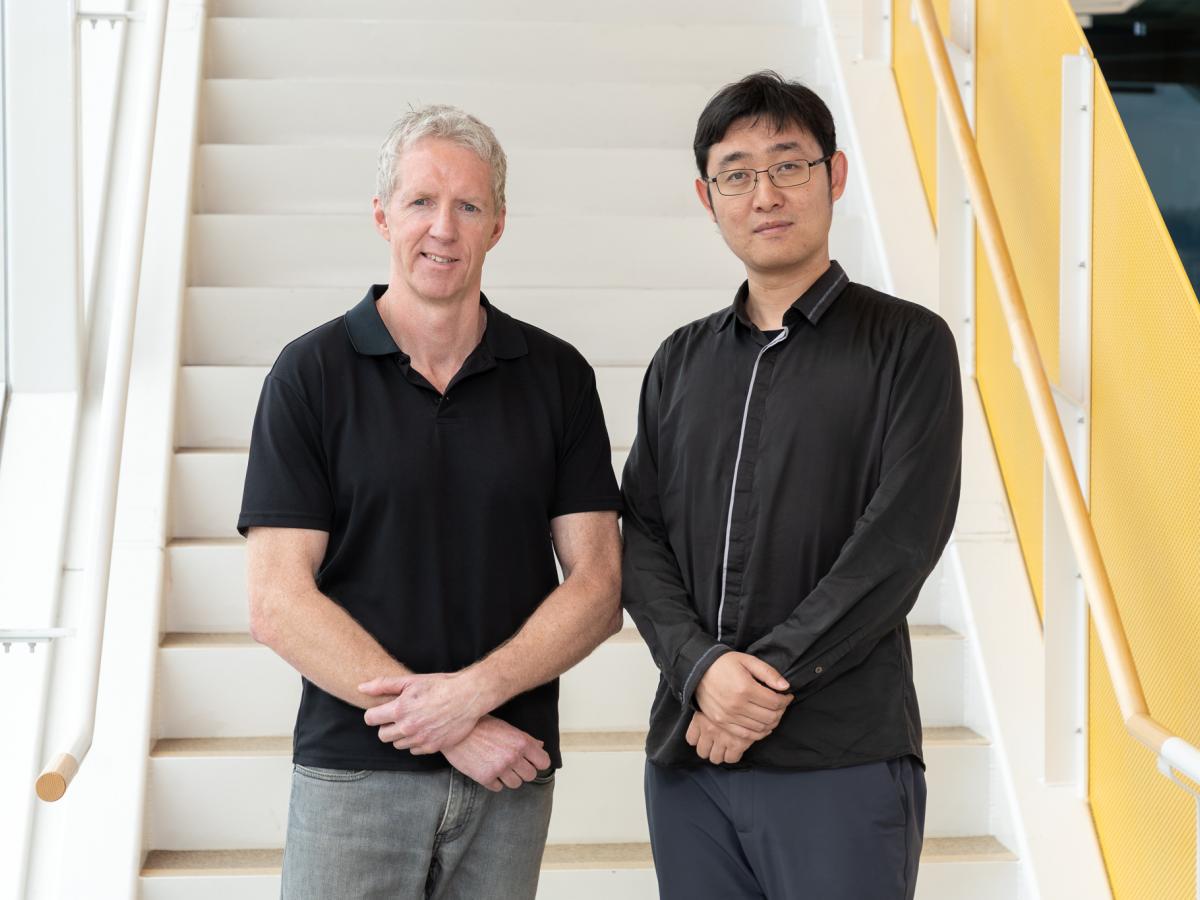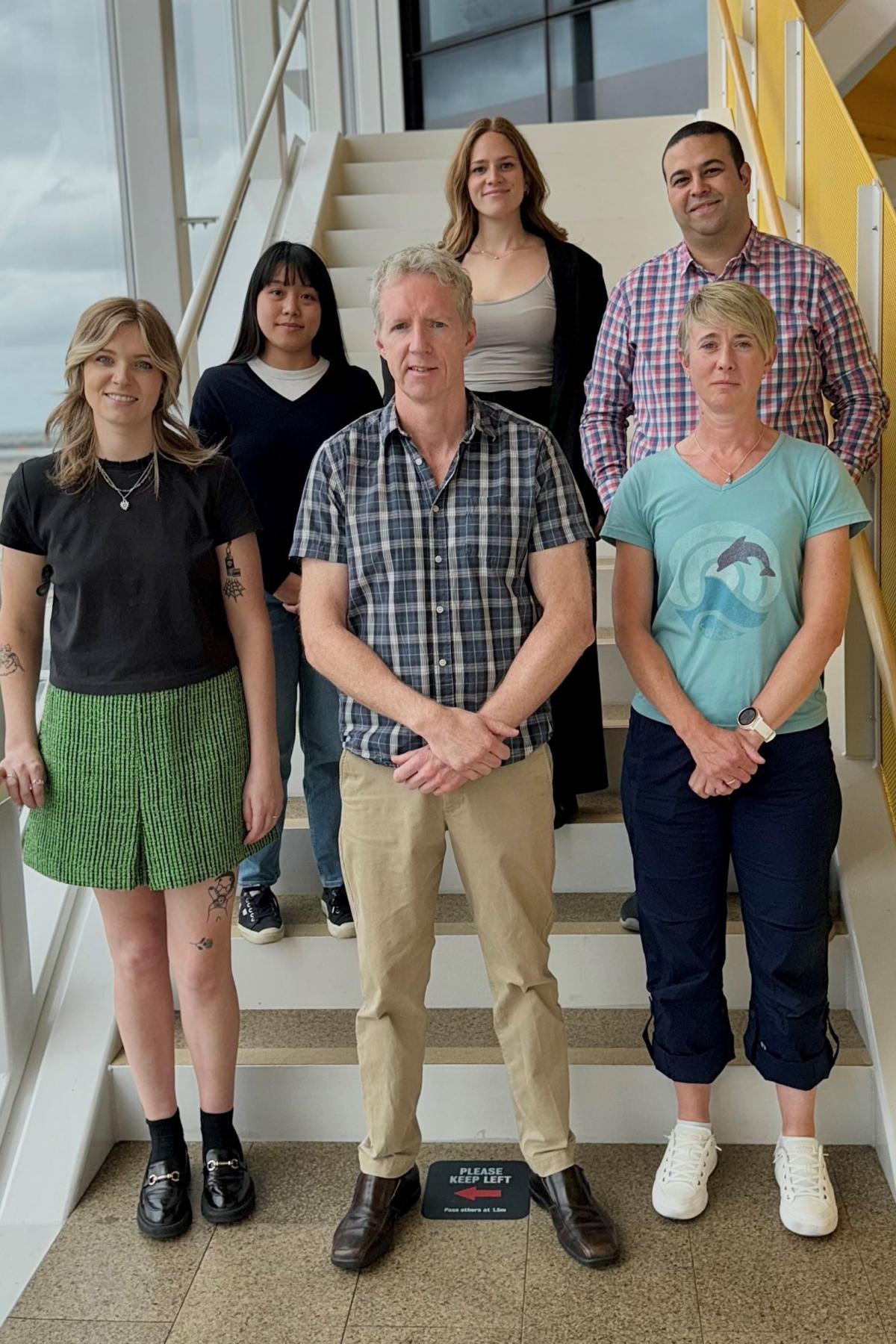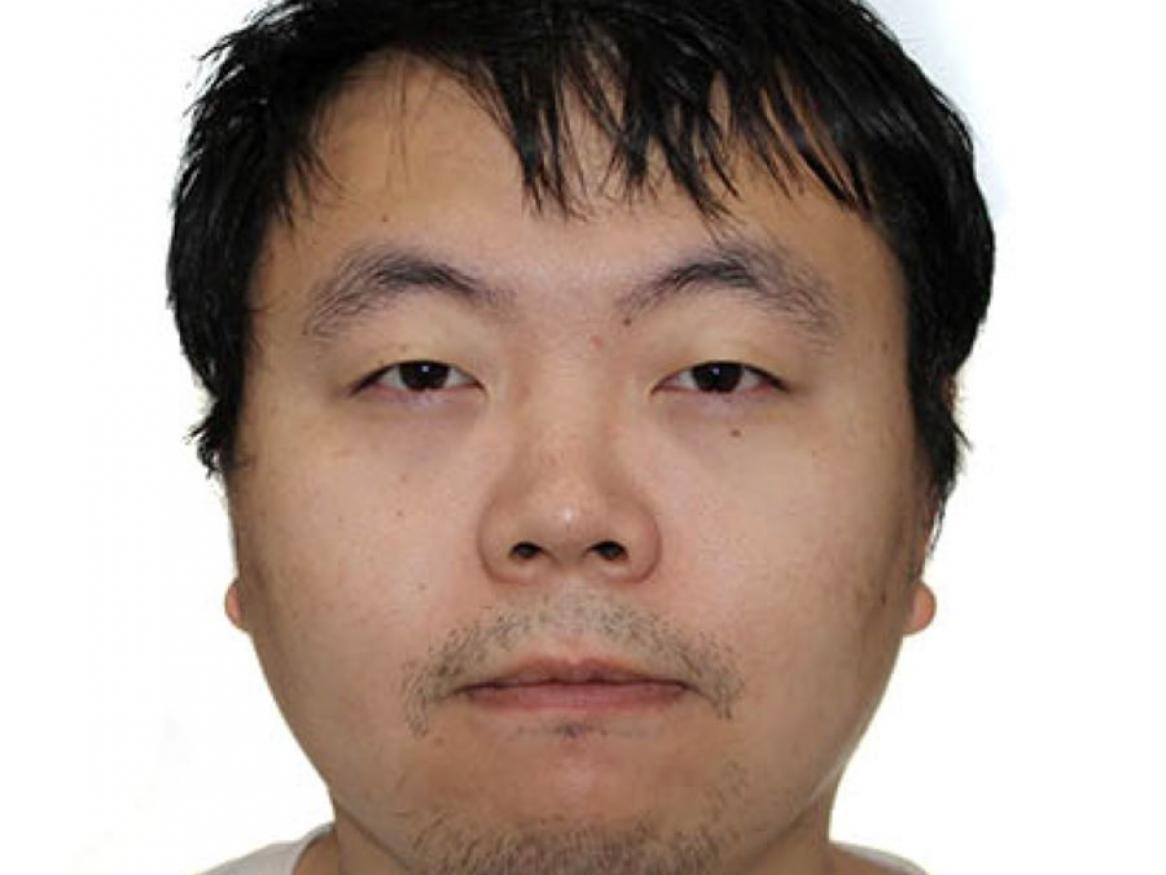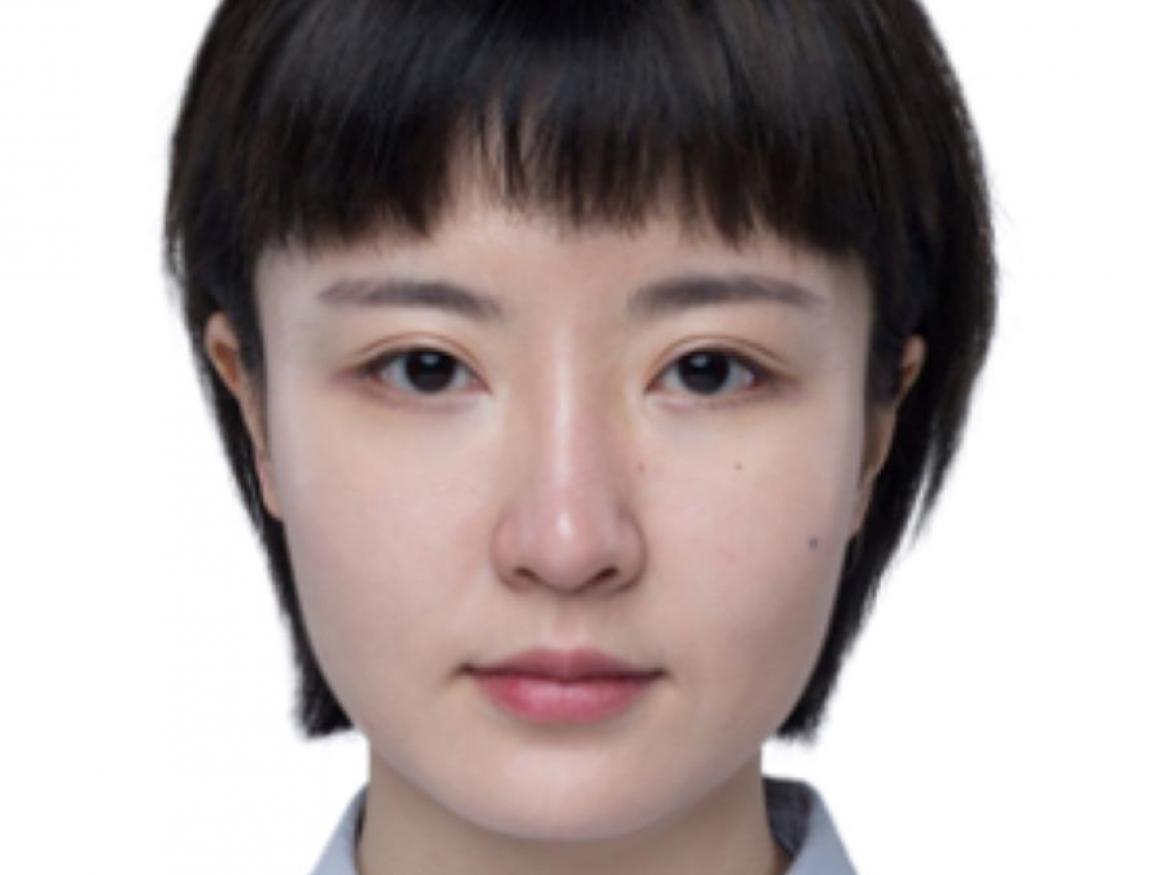Tumour Inflammation and Immunotherapy
This program will integrate basic and translational research to inform new immune-based strategies targeting both innate and adaptive immunity in cancer.

L-R: Professor Brendan Jenkins, Dr Yannan Yang.
Inflammation triggered by uncontrolled activation of the innate immune system is associated with at least one third of all cancers (e.g. lung, stomach, pancreatic, colorectal, liver) highlighting the need to understand the molecular and cellular basis by which regulators of innate immunity drive certain cancers.
Immunotherapy has revolutionized the treatment landscape in cancer, yet many cancers remain refractory to current immunotherapy (such as with adaptive immune check point inhibitors).
Combinatorial and complementary approaches will be employed to:
- Therapeutically enhance the visibility of certain tumour types to be attacked by the adaptive immune system (i.e. boost anti-tumour adaptive immunity), and
- Identify inflammation-associated tumour types in which targeting the innate immune response suppresses tumour-promoting inflammation.
The cancer disease to be targeted is not defined, with a tissue agnostic approach, but encompasses all cancer.
Biomaterials and Immune Engineering Laboratory (BIEL)
Group Leader - Dr Yannan Yang
BIEL aims to leverage state-of-the-art biomaterials and nanotechnology-based approaches to modulate immune system and create translational immunotherapy strategies with improved therapeutic efficacy and minimized adverse effects. Our laboratory is specifically interested in designing and fabricating biocompatible nanoparticles, hydrogels, scaffolds and cell/bacteria derived biomimetic materials with immunomodulatory activities and controlled drug release profile for engineering immunity. We stand at the materials-bio interface and investigate how biomaterials at different scales (nano, micro and bulk) can interact with bio-systems and tumour microenvironment, and how these interactions can be further controlled to benefit the outcome of immunotherapy that aims to prevent and treat cancer.
Cancer and Immune Signalling Laboratory (CISL)

Back L-R: Karen Hon, Andrea Neoral, Dr Mohamed Saad. Front L-R: Dr Ruby Dawson, Professor Brendan Jenkins, Sarah Tamang.
Group Leader - Professor Brendan Jenkins
The pathogenesis of at least 25% of cancers (e.g. gastric, pancreatic, lung) is associated with chronic inflammation driven by over-activation of the body’s two arms of the immune system: innate immunity, a rapid, non-specific immune response against microbes and tissue injury that can persist long-term in a chronic state; and adaptive immunity, a slower, more specific immune response encompassing T cell-mediated and humoral immunity. While harnessing the adaptive immune response via immunotherapy to treat cancers using immune checkpoint inhibitors and more recently, CAR-T cells, is established, intervention against innate immunity, despite its great potential, is understudied. The work performed by our group aims to reveal molecular regulators of innate immunity as novel targets for anti-cancer therapy.
The projects undertaken in our group combine molecular biological and genetic approaches, together with human translational studies, to identify the mechanisms by which uncontrolled activation of key regulators of the innate immune system, namely pattern recognition receptors (PRRs) such as toll-like receptors (TLRs) and cytosolic DNA sensors, as well as inflammasomes, lead to inflammation-associated cancers of the stomach, lung and pancreas. In addition, we investigate how the iRhom and ADAM17 families of proteases, as well as the interleukin (IL)-6 cytokine family, contribute to these innate immune-driven inflammation-associated cancers, potentially via crosstalk with PRRs.
Our studies on the role of innate immunity in cancer are also complemented by our investigations into how the above-mentioned innate immune regulators trigger chronic inflammatory conditions which are risk factors for certain cancers. In particular, our group focuses on chronic gastritis, pancreatitis and emphysema/COPD which can predispose individuals to gastric (stomach), pancreatic and lung cancers, respectively.
T cell Immunotherapy Laboratory (TCIL)
Group Leader - Dr Mara Zeissig
Immunotherapies such as CAR T cell therapy or immune checkpoint inhibitors all harness the ability of cytotoxic T cells to recognise and kill tumour cells. However, approximately 80% of solid cancer patients do not respond to immunotherapy. This is due to both tumour intrinsic and extrinsic evasion mechanisms, the most crucial of these being 1) the immunosuppressive microenvironment that leads to T cell exhaustion and 2) loss of antigen and/or checkpoint ligand expression on tumour cells rendering the tumour unrecognisable by T cells. Importantly, there may be additional, undiscovered immune evasion mechanisms that could be exploited for immunotherapy.
Our lab is focused on understanding how cancers evade the immune system to identify new ways to enhance response to immunotherapy. In particular, we work on cancers that are addicted to the oncogene KRAS, in particular lung, colorectal and pancreatic cancers. We utilise a range of tools including genetically engineered preclinical models of cancer, analysis of immune cell subsets, single-cell profiling and molecular biology techniques. We also harness large-scale genetic screening using CRISPR-Cas9 technology to find previously unknown targets and mechanisms that regulate response to immunotherapy.
People
Professor Brendan Jenkins
Program Lead and Group Leader, Cancer and Immune Signalling Laboratory (CISL)
Dr Yannan Yang
Group Leader, Biomaterials and Immune Engineering Laboratory (BIEL)
Dr Mara Zeissig
Group Leader, T cell Immunotherapy Laboratory (TCIL)
Researchers
-
Biomaterials and Immune Engineering Laboratory (BIEL)
Jiangqi Luo
Research Co-ordinator
Dr Moustafa Mabrouk
Postdoctoral Researcher
Dr Thanh Loc Nguyen
Postdoctoral Researcher
Yiru Shi
Research Co-ordinator
-
Cancer and Immune Signalling Laboratory (CISL)
Dr Yu Chinn Joshua Chey
Postdoctoral Researcher
Dr Ruby Dawson
Postdoctoral Researcher
Karen Hon
Research Co-ordinator
Andrea Neoral
Research and Laboratory Manager
Dr Mohamed Saad
Postdoctoral Researcher
Sarah Tamang
Animal and Laboratory Technician
Shermin Yu Tung Chan
MPhil Candidate
Tasmia Siddiqua
Master of Biotechnology Candidate















